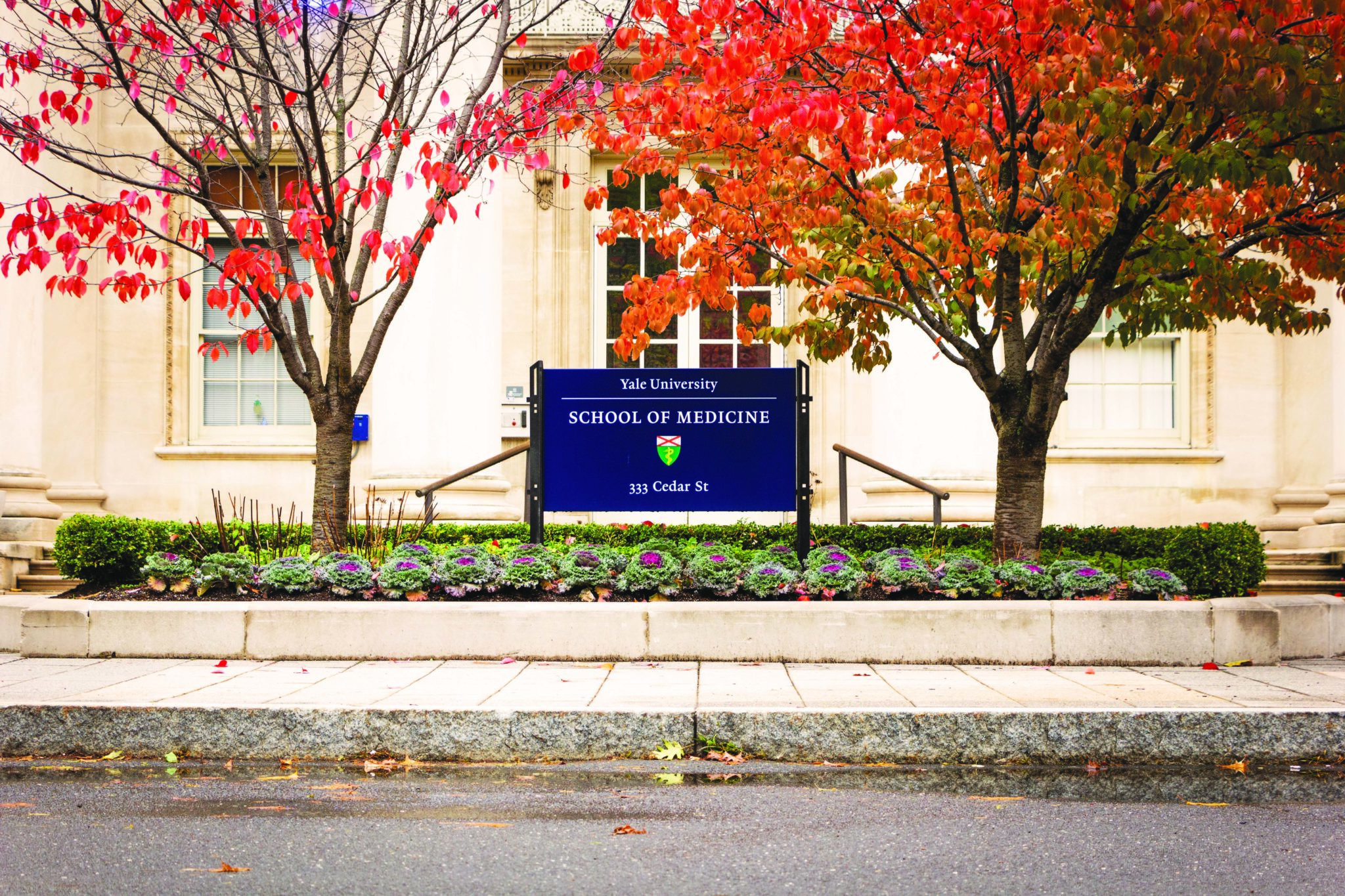
Marisa Peryer
From Robert Frost to red blood cells, it’s a surprise to many that medical students can be poets on the side.
At the Yale School of Medicine, however, it’s a yearly occurrence.
A joint poetry competition between the Yale School of Medicine and University College London, named the “Yale-UCL Medicine Poetry Competition,” is still going strong after its start in 2011. Students at both schools submit their finest poetry to a group of judges, who then give prize money to the best budding Shakespeares across the pond.
The idea came into action almost by chance: two Yale affiliates sat next to each other at the 2011 Yale-Harvard Football Game. Mark Singer ’72 — a staff writer for The New Yorker — wasn’t fond of the sport, while John Martin, a cardiovascular medicine professor at Yale School of Medicine, had never been to an American football game, Singer said.
The two began talking about a potential poetry competition, and by the end of the game, Singer agreed to fund the prizes. The idea intrigued him, he said.
“Once you’re immersed in science, how do you give yourself some sort of aesthetic and spiritual satisfaction?” he asked. “We’ve since become very good friends, but I just thought [funding the competition] would be a good thing to do.”
Medical students, and later engineering students, have been submitting their poetry ever since. According to a New Yorker article that Singer wrote in 2013, the first-place winner receives 1,000 pounds.
This year, both awards went to University College London students. But four runner-up certificates, known as “proxime accessit,” were awarded to Yale School of Medicine students.
Sophia Francesca Gamez MED ’21 won a proxime accessit for her poem titled “Five by Five in Anatomy Lab.” In seven stanzas, Gamez’s piece explores death and the macabre by describing how it feels to examine a cadaver.
“My body is a heap of organs / encased in another organ and yes,” she wrote, “I put my own hands inside a man / and touch his liver, his heart. / He is full of my handprints.”
The competition was judged by four professors at the two schools, including Director of the Program for Humanities in Medicine Anna Reisman ’86, who has published essays in The New England Journal of Medicine, among other publications. She and the others — including Martin — read the poems after they were stripped of identifying details. The judges then met on Skype and chose the winners.
“There’s a wide variety of talent and skill,” she said. “Medical students and engineering students are often hyper-focused on [their work] so [that] there’s not a lot of time built in for reflection.”
Reisman added that not every poem was about medical experiences. Many were about different aspects of life.
Singer was an English major at Yale, and although he spent his undergraduate years studying poetry, he doesn’t consider himself to be a poet.
The students, on the other hand, are “stunning,” he said.
“I was always impressed when I was reading these poems,” he added. “The names of the poets and the incredible range of nationalities and backgrounds meant that you were just getting a much richer range of points of view among the writers themselves.”
This year’s first-prize poem, titled “Snakes and Ladders,” was written by Charlotte Leigh, a student from University College London.
Matt Kristoffersen | matthew.kristoffersen@yale.edu







